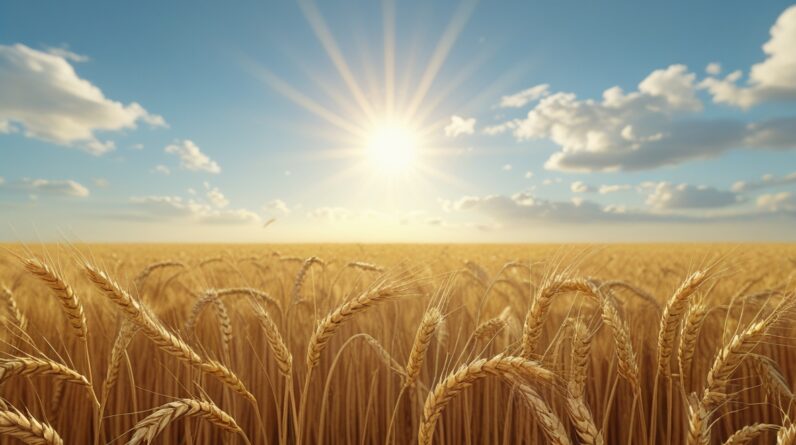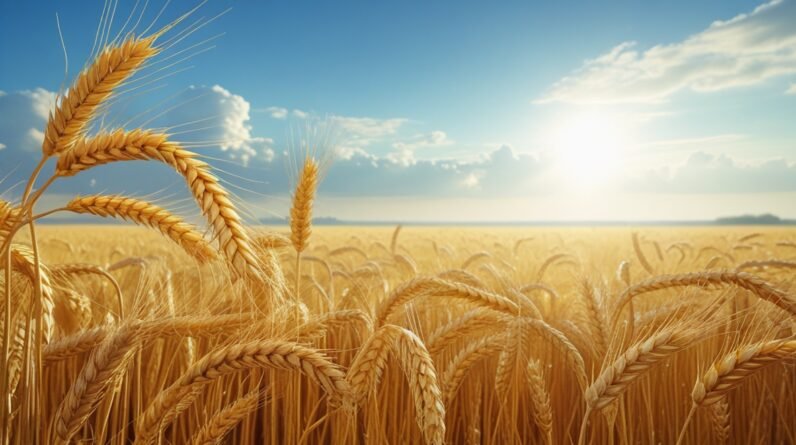Stories Of God’s Provision In The Bible
You’ve probably turned to the Bible in seasons of want, worry, or wondering how things will work out. The Scriptures are full of stories of God’s provision that are both practical and soul-deep—tales that remind you that provision isn’t only about food or money; it’s about presence, timing, creativity, and promise. In the paragraphs that follow, you’ll walk through key stories of God’s provision in the Bible, each one chosen to build your faith, sharpen your hope, and give you language to tell your own story of dependence on God.
Why these stories matter to you
When you read stories of God’s provision, you aren’t simply consuming ancient history—you’re being invited into a living narrative that speaks to your present needs. These accounts show patterns: God notices need, God acts often in unexpected ways, and God calls you to trust and sometimes to participate. You’ll find that these biblical stories aren’t abstract theology but moments meant to strengthen your courage when resources fall short, when plans unravel, or when waiting stretches long.
Abraham and the provision of a substitute (Genesis)
One of the earliest and most poignant stories of God’s provision is Abraham’s experience on Mount Moriah. Just when Abraham is about to sacrifice Isaac, God provides a ram in the thicket as a substitute sacrifice, and Abraham names the place “The Lord will provide.” This moment becomes a theological hinge: God provides what is needed, sometimes substituting mercy where judgment seems imminent. See the scene remembered in Genesis 22:14: Genesis 22:14. For you, this episode can become a lens: when your hopes seem pinned to a single outcome, God’s provision may come in a way you didn’t predict—often better than you expected.
Joseph and provision in the years of plenty and famine (Genesis)
Joseph’s story in Egypt is a masterclass in providence and stewardship. Given the ability to interpret Pharaoh’s dreams, Joseph organizes a plan to store grain during the seven years of plenty so Egypt can survive the seven years of famine. This is provision on a societal scale: God gives insight, and human action stores and distributes what’s necessary. Read how the stores sustained many in Genesis 41:47-49: Genesis 41:47. You can draw a lesson here about preparation and the ways God supplies wisdom and resources ahead of crises—sometimes through other people and systems.
Manna from heaven: daily dependence in the wilderness (Exodus)
Perhaps the classic image of daily provision is the manna in the wilderness. The Israelites complain of hunger; God responds with bread from heaven each morning. It’s miraculous and practical, and it teaches daily dependence—collect enough for one day, trust for the next. You can read the initial instruction in Exodus 16:4: Exodus 16:4 and the people discovering it in Exodus 16:15: Exodus 16:15. When you’re tempted to hoard or to panic about long-term scarcity, remember the manna: God’s provision often arrives in rhythms that shape your trust.
Water from the rock: provision in desperate moments (Exodus and Numbers)
Stories of God’s provision include dramatic, life-saving interventions like the water from the rock. When the people face thirst and are desperate, God provides water through Moses striking a rock. Read the event in Exodus 17:6: Exodus 17:6. In another instance, Moses’ leadership and God’s command result in a similar provision in Numbers 20. These stories remind you that provision can be immediate and bodily—God meets the most elemental needs when they are pressing.

The end of manna: God’s provision changes form (Joshua)
Provision can be seasonal. When the Israelites finally enter the Promised Land, the miraculous provision of manna ceases; they begin to eat the produce of the land. The story teaches you that God’s ways of providing change as circumstances change and that dependence matures into fruitfulness. You can see this transition noted in Joshua 5:12: Joshua 5:12. For your life, that means God may supply in one way during a season of wandering and in a different form when you settle or grow.
Elijah and the ravens: provision through surprising channels (1 Kings and Luke)
God’s provision often comes through unexpected channels. When Elijah is told to hide by the brook Cherith during a famine, God sends ravens to bring him bread and meat morning and evening. Read this surprising arrangement in 1 Kings 17:6: 1 Kings 17:6. Jesus later points to ravens as an example of God’s care: “You see how God feeds the birds,” in Luke 12:24: Luke 12:24. These passages encourage you to look for provision from unlikely sources and to trust that God can use anything and anyone to meet your needs.
Elijah and the widow at Zarephath: provision for those who give (1 Kings)
Another faith-building narrative involves Elijah and the widow of Zarephath. During a severe famine, Elijah asks a widow for a little flour and oil to make a meal. Despite scarcity, she obeys, and God multiplies what she has so that her jar of flour and jug of oil do not run out until the famine ends. You can read Elijah’s promise and its fulfillment in 1 Kings 17:14: 1 Kings 17:14. This story teaches that offering what you do have to God and to others can be both sacrificial and a channel for continued provision.
Elisha and the widow’s oil: multiplication and dignity (2 Kings)
The story of Elisha and the widow’s oil continues the theme of multiplied provision for those facing debt and loss. A widow who fears losing her children to slavery because of debt is instructed to gather jars and pour the little oil she has into them. The oil multiplies until all jars are filled, giving her enough to sell and settle her debt. The testimony is found in 2 Kings 4:6-7 (read verses): 2 Kings 4:6. This account invites you to consider how God’s provision can restore dignity and agency, enabling you to meet obligations and preserve family well-being.
The widow who gave all: sacrificial provision as faith (Mark/Luke)
Jesus watches a poor widow give two small coins and points her out as an example of sacrificial giving: she gave all she had to live on. Her action is counted not as a lack but as a profound trust. Read about her in Mark 12:42-44 or Luke 21:1-4; one clear verse to reference is Mark 12:44: Mark 12:44. For you, this story flips assumptions: sometimes the truest picture of provision is not abundance but the willingness to trust God with what you have.
Elisha and the prophets: provision through community (2 Kings)
Elisha performs several acts that show God’s provision through community—feeding a hundred men with a small amount of food, miraculously supplying bread. The point is relational: God uses networks and leaders to channel provision. Read one relevant scene in 2 Kings 4:43: 2 Kings 4:43. This helps you see that you are not meant to face need alone—God often provides through community, through leaders, and through the people around you.
The feeding of the 5,000: abundance from little (Matthew, Mark, Luke, John)
One of the most famous stories of God’s provision is Jesus feeding the 5,000. A small boy’s lunch—five loaves and two fish—becomes enough for thousands after Jesus gives thanks and multiplies it. Read the multiplication in Matthew 14:19: Matthew 14:19. The story reassures you that when you offer what seems inadequate, Jesus can multiply it in ways both practical and sacramental. It’s a picture of how God works with what you bring and supplies the rest.
The feeding of the 4,000: repeated compassion (Matthew)
Jesus also feeds a crowd of 4,000, again showing compassionate provision for physical hunger. This second feeding (which echoes the first) underlines his pattern of noticing needs and meeting them. See the multiplication in Matthew 15:36: Matthew 15:36. For your life, these episodes remind you that God’s provision is both repetitive and dependable—he doesn’t just provide once; he continues to care.
Jesus and the catch of fish: provision and restoration (John)
After his resurrection, Jesus helps his disciples haul in a miraculous catch of fish, and he cooks breakfast for them on the shore. The scene is tender and restorative—Jesus provides not only food but a renewed relationship after failure and doubt. You can read about the catch in John 21:11: John 21:11. When you face disappointment or second-guesses, remember that God’s provision often includes restoration—he meets practical needs and restores your place at the table.
The coin in the fish’s mouth: God meets obligations (Matthew)
When confronting a tax question, Jesus tells Peter to catch a fish and find a coin in its mouth to pay the temple tax. This small but striking story illustrates God’s concern for routine obligations and social responsibilities. See the surprising solution recorded in Matthew 17:27: Matthew 17:27. For you, it’s a reminder that God can provide for everyday, mundane matters as easily as for the large ones.
Daniel and the lions: provision of protection (Daniel)
Provision is sometimes protection. In the story of Daniel in the lions’ den, God preserves Daniel’s life, demonstrating providential safeguarding in the face of mortal threat. The angelic protection that keeps Daniel unharmed is recorded in Daniel 6:22: Daniel 6:22. You can take heart that God’s provision may include safety and deliverance in situations that feel hopelessly dangerous.
Shadrach, Meshach, and Abednego: presence as provision (Daniel)
When Shadrach, Meshach, and Abednego are thrown into the fiery furnace, they are not burned, and a fourth figure appears with them—God’s presence walking through the trial. This kind of provision is relational: more than deliverance, God gives his presence as a sustaining reality. See a snapshot of that scene in Daniel 3:25: Daniel 3:25. You may discover that God’s primary provision in your hardest trials is his sustaining nearness.
Hannah answered prayer: provision of a heart’s desire (1 Samuel)
Hannah’s story is a portrait of longing and answered prayer. Barren and deeply distressed, she prays fervently and vows to give her son to the Lord. God answers: she conceives and gives birth to Samuel, who becomes a prophet and judge. See Hannah’s answered prayer in 1 Samuel 1:20: 1 Samuel 1:20. This story assures you that provision often reaches deep into the heart, bringing the gifts you prayed for in ways that shape family and community.
Psalm 23: the Lord as provider and shepherd (Psalms)
Scripture repeatedly uses shepherd imagery to describe God’s provision. Psalm 23 encapsulates this beautifully: “The Lord is my shepherd, I lack nothing.” It’s poetic, pastoral, and deeply personal, suggesting both physical abundance and spiritual care. Read that simple, powerful promise in Psalm 23:1: Psalm 23:1. For you, Psalm 23 is a go-to reminder that God leads, provides rest, and restores—even when valleys feel real and dark.
New Testament promises: God meets your needs (Philippians and Matthew)
The New Testament offers direct assurances that God will meet needs and attend to your concerns. Paul writes, “My God will meet all your needs according to the riches of his glory in Christ Jesus,” a sweeping promise of provision rooted in Christ’s abundance—see Philippians 4:19: Philippians 4:19. Jesus teaches not to be anxious about daily needs, pointing to birds and lilies as examples of God’s care in Matthew 6:26 and Matthew 6:31-33: Matthew 6:26 and Matthew 6:31-33. These passages encourage you to seek God’s kingdom first and trust the rest to his provision.
Practical wisdom from the stories: what you can do
Throughout these stories of God’s provision, there are practical rhythms you can adopt. You can prepare and plan like Joseph without becoming frantic; you can give sacrificially like the widow; you can gather in community so God’s provision flows through relationships; you can practice daily dependence like the Israelites with manna; and you can petition God persistently like Hannah. Each story offers a posture—trust, action, generosity, patience—that shapes how you experience God’s ongoing care.
When provision looks different from what you expect
One of the hardest lessons in these stories is that God’s provision sometimes looks very different from what you anticipated. Abraham expected Isaac to live; God provided a ram as a substitute. You may be praying for a career, a child, or a healed relationship—and God’s provision might arrive as a reroute, a new perspective, or a different gift. These biblical narratives encourage you to stay open to God’s creativity and to be ready to praise him when provision takes a shape you didn’t foresee.
Provision that shapes character
You’ll notice a pattern: provision is not only about meeting needs but about forming character. The manna regimen teaches daily dependence and obedience; Elijah’s reliance on God while hidden grows trust; the widow’s multiplication of oil produces faith, not just finances. God’s provision often comes alongside sanctifying purposes—comfort paired with correction, supply paired with lessons in humility and generosity.
How to pray and respond in light of these stories
When you pray after reading these stories of God’s provision, do so with expectancy and humility. Bring specifics—like the tax Jesus solved or the widow’s debt—and ask God for wisdom, not just resources. Be prepared to respond: offer what you have, gather community, steward resources wisely, and give sacrificially. Remember Paul’s practice: he thanked God for support and also encouraged the Philippians to be channels of God’s provision to others (Philippians 4:10-20; see especially Philippians 4:19 again): Philippians 4:19.
When provision is spiritual more than material
Some stories shift the focus from physical provision to spiritual provision: Jesus provides rest for the weary, forgiveness for the guilty, and the Holy Spirit for the seeking soul. Romans gives a perspective on God’s ultimate provision in Christ—what he did by giving his Son (see Romans 8:32): Romans 8:32. Recognize that the ultimate provision may be relational and redemptive: a reconciled heart, a renewed spirit, access to God himself.
Faith in the delay: trusting when provision is slow
A recurrent theme in these stories is delay. The Israelites wait for manna to appear each morning; Hannah waits years for a son; Joseph waits in prison before becoming prime minister. Delay is not denial; it is a season that can deepen your faith. Psalm impressions and prophetic narratives teach patience and trust in God’s timing. When provision is slow, you’re invited to hold on, to work faithfully with what you have, and to keep watch for God’s arrival in his time.
Community as a channel: how your neighbors fit into provision
Many stories of God’s provision involve other people as instruments of care: Joseph stores grain that feeds nations; Elisha’s miracle meets community needs; the early church shares what they have so “none were in need.” These patterns suggest that you are both a receiver and a channel. Consider how God might ask you to be provision for another—prayer, hospitality, money, a listening presence—so that God’s generosity becomes practical in your local context.
Where to turn when you don’t see provision
When provision feels absent, the Bible invites you to lament, cry out, and keep seeking. Psalms are honest about hardship, and prophets urge faithful waiting. You can read aloud the promises (like Psalm 23, Philippians 4:19, and Matthew 6:26) and lean on community for prayer. Practical steps include creating a plan, seeking wise counsel, asking for help, and offering what you can, even in want. These are not quick fixes, but patterns that the biblical stories validate again and again.
Your invitation: living in light of these stories
These stories of God’s provision in the Bible are not museum pieces; they’re invitations. You’re invited to trust God with your daily bread, to offer what you have for others, to be open to creative solutions, and to expect God’s presence even in fires and dens. You’re invited to view provision as relational—God providing himself and using people and circumstances to bring help.
Final reflections and practical steps
As you reflect on these stories, pick one to meditate on this week. Let it shape a specific action: prepare a simple budget (Joseph-style), give sacrificially (the widow-style), volunteer in a local food ministry (Elijah-and-widow-style), or practice daily dependence with a small spiritual discipline like morning prayer (manna-style). Watch how God meets practical needs and shapes your heart in the process. Keep a journal of answered prayers so that your faith grows through recollection and testimony.
If one story stood out to you, tell it to someone—stories of God’s provision are meant to be shared and multiplied. As you practice generosity and trust, you’ll likely discover God’s surprising ways of caring for you and through you.
Explore More
For further reading and encouragement, check out these posts:
👉 7 Bible Verses About Faith in Hard Times
👉 Job’s Faith: What We Can Learn From His Trials
👉 How To Trust God When Everything Falls Apart
👉 Why God Allows Suffering – A Biblical Perspective
👉 Faith Over Fear: How To Stand Strong In Uncertain Seasons
👉 How To Encourage Someone Struggling With Their Faith
👉 5 Prayers for Strength When You’re Feeling Weak

📘 Jesus and the Woman Caught in Adultery – Grace and Mercy Over Judgement
A powerful retelling of John 8:1-11. This book brings to life the depth of forgiveness, mercy, and God’s unwavering love.
👉 Check it now on Amazon 🛒💥
🔥 “Every great message deserves a home online.” 🌍💬🏡
Don’t let your calling stay hidden. Start a Christian blog or website using Hostinger — with 99.9% uptime, a free domain, and SSL, your voice can shine for God’s glory anytime, anywhere.
💥 Begin today. 🛒 Try it RISK-FREE! ✅
✝️ “Your body is God’s temple — care for it with purpose.” 💪💖🏛️
Renew your energy and restore balance naturally. Mitolyn helps support a healthy metabolism, giving you the vitality to live out God’s calling with strength and confidence.
🔥 Unlock Your Metabolic Power! ⚡Burn More Calories & Feel Great With Mitolyn. 💪
👉 Start Today. 🚀 Check Price Now. 🛒💰
💰 As a ClickBank & Amazon Affiliate, I earn from qualifying purchases.
📖 Acknowledgment: All Bible verses referenced in this article were accessed via Bible Gateway (or Bible Hub).
🚀 Want to explore more? 👉 Dive into our new post on Why Jesus? and experience the 🔥 life-changing truth of the Gospel!








